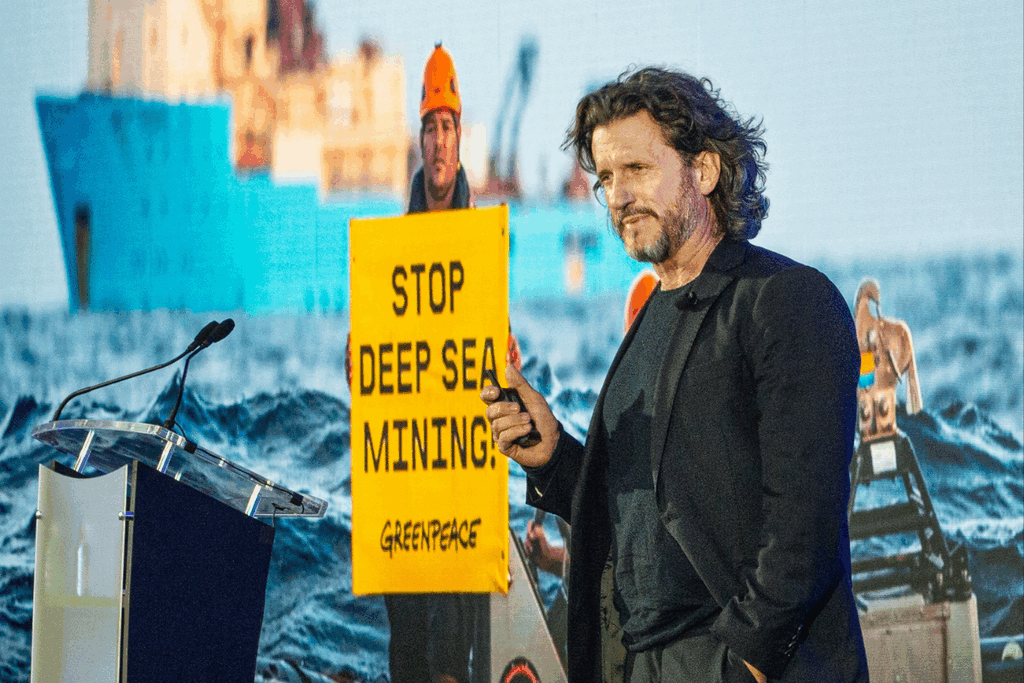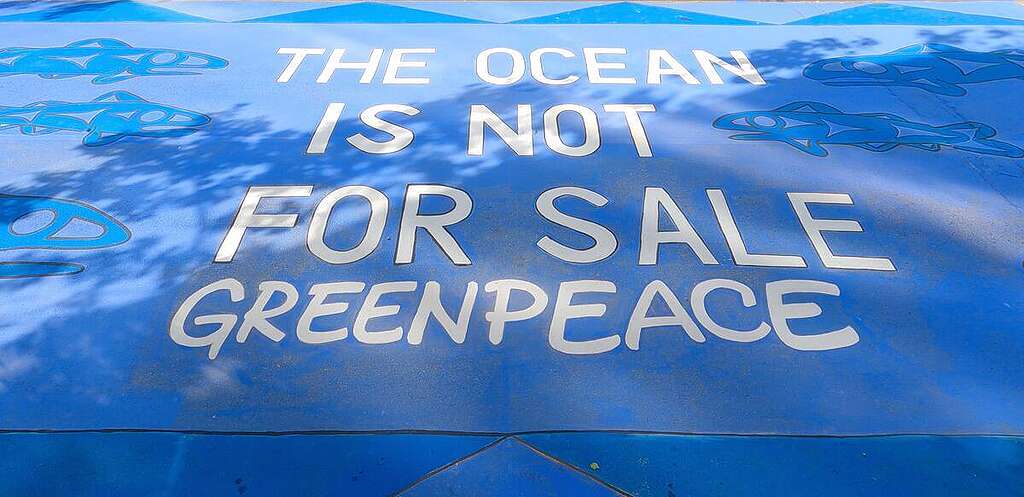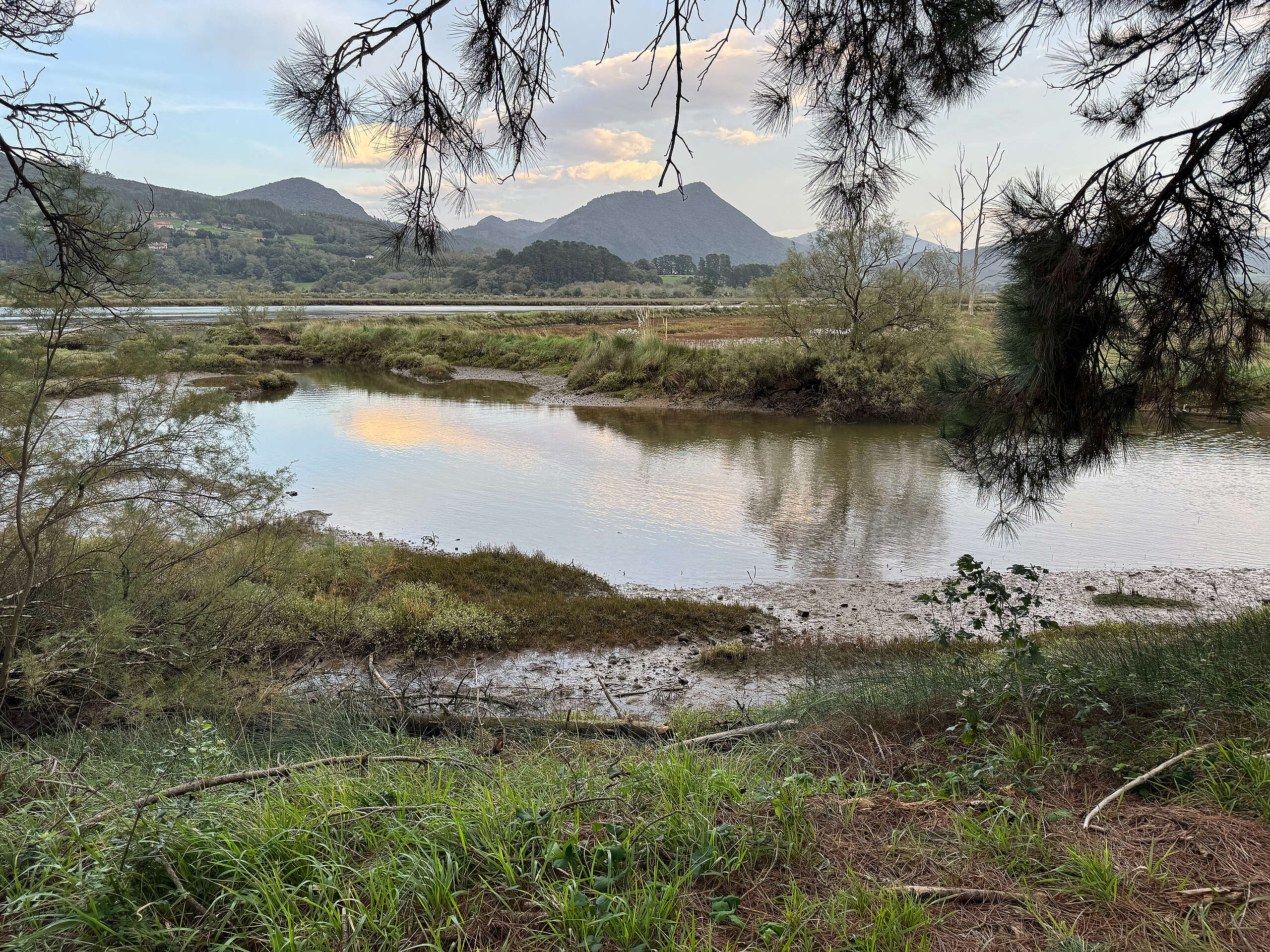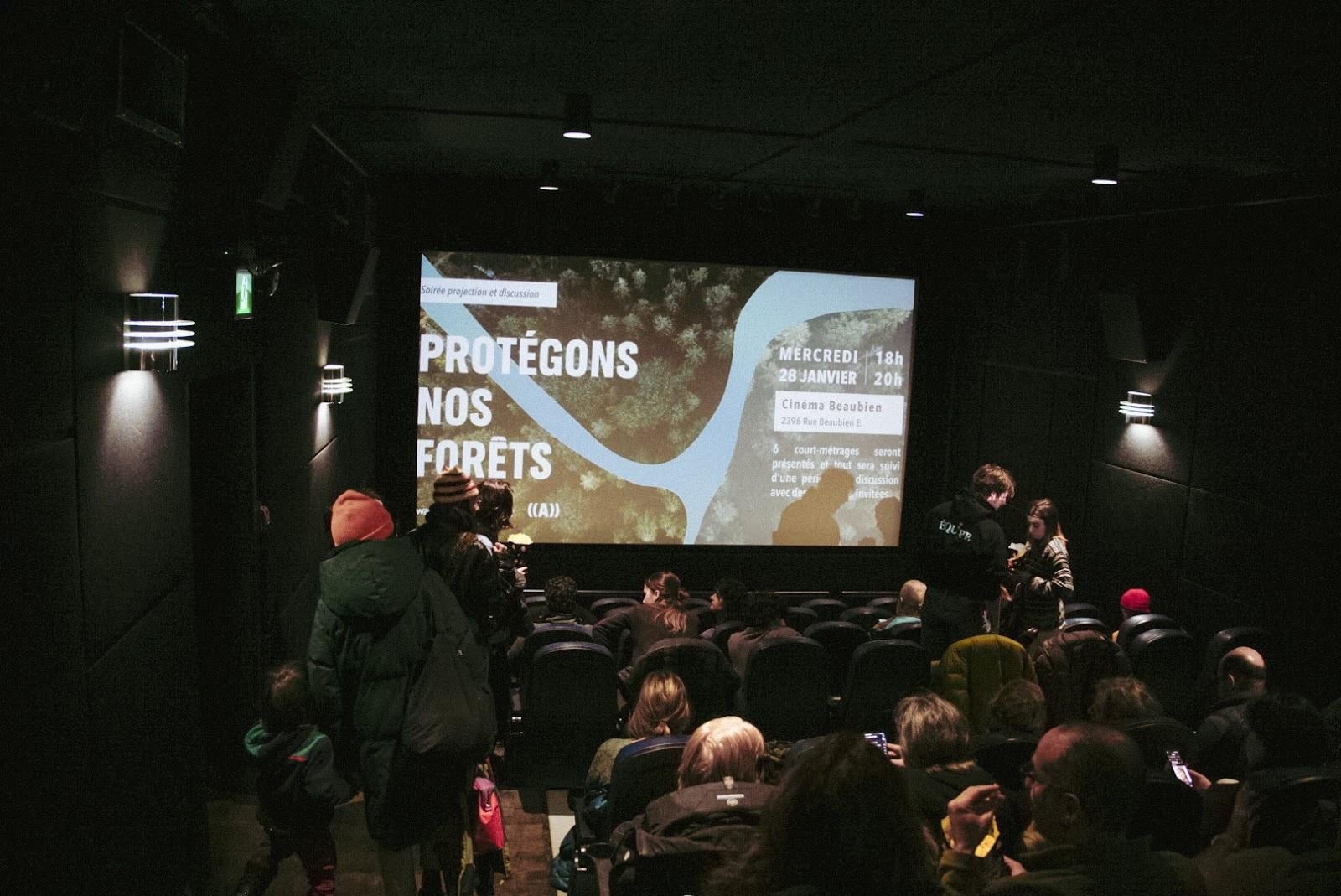
What makes Vancouver-based The Metals Company (TMC), a little-known company that isn’t even making any money, a threat to the ocean, international conventions, transparency and the clean energy transition?
While deep sea mining has not begun at commercial scale anywhere on Earth –and we’ve built a global movement of millions of people and political support to keep it that way – the wannabe deep sea mining bros at TMC are getting desperate, using aggressive and controversial tactics like lobbying Donald Trump to let them start their dirty business.
Here are 5 things you need to know, so we can stop this Canadian company together.
1. Private interests trying to carve up the Pacific
Headquartered in Vancouver, with a tech-bro CEO who stands to make millions and staff overwhelmingly based thousands of miles away in the Global North, TMC wants to unleash deep sea mining in the Pacific Ocean. This would drive ocean destruction in the global commons, in a region already resisting the impacts of climate breakdown and industrial fisheries.
The company (originally called DeepGreen) has been part of a private sector push to monopolise deep sea mining exploration in the Pacific Ocean: at one point, it held rights to a quarter of a million square kilometres of the deep ocean floor.
Repeating the injustices of destructive exploitation from North America and Europe, TMC has been heavily criticised by Pacific campaigners, communities and even governments for deepening neo-colonial extractivism.
CEO Gerrard Barron has tried to marginalise opposition from Indigenous Pasifika groups, claiming he’d met with native Hawaiian “elders” and “listened to their thoughts”, but dismissed them: “there’s a lot of niche groups who have a lot of thoughts, right?”
This isn’t his first rodeo either: Barron had been an early investor in a different company that tried to mine the deep ocean in Papua New Guinea, only for it to massively underestimate local opposition and go bust before they started mining. This left the island state to pick up a bill of over US $100 million.
2. TMC tried to set governments’ agenda – it backfired!
As TMC has no way of turning a profit until they get permission to start deep sea mining, political support for ocean protection has been their biggest barrier.
The Canadian company lobbied hard at the International Seabed Authority (ISA), the intergovernmental regulatory body established by the UN, even shamelessly using a Pacific country’s seat at the table to tell governments, “personally, I get very uncomfortable when people describe us as deep sea miners”. But when it became clear that governments were listening to public concern and scientific warnings more than corporate interests, TMC stepped things up.
In 2021, their sponsoring state used a legal loophole which effectively delivered an ultimatum: either finish a Mining Code allowing deep sea mining to begin within two years, or TMC will submit an application with no rules in place at all. Even by the cowboy standards of the high seas, this was a “stick ‘em up!” move.
But despite tough talk, TMC’s financial director told media that whether governments delivered them a Mining Code or not, “we have the legal right to launch our permit application, meaning they‘d have to consider and provisionally process it.” This bullying tactic actually backfired. Before TMC triggered this two-year ultimatum, no government was publicly questioning whether deep sea mining should start or not. Since TMC made this threat, over 37 governments from around the world have called for a moratorium on the start of deep sea mining.
3. TMC loved to greenwash – until they got called out by clean energy companies and scientists
If you’re trying to start deep sea mining, when love for the ocean unites people around the world and governments are agreeing to a Global Ocean Treaty, which Canada is a signatory of, to protect marine life, you’re never going to win a popularity contest.
In a bid to stop people focusing on the tank-sized excavators five kilometres below the waves required to scrape up the bottom of the ocean, TMC launched a PR campaign to pitch deep sea mining as the solution to climate change. Company representatives gave hundreds of interviews, creating a false dilemma, claiming that humanity had to choose between destroying rainforests and oceans to mine minerals for car batteries. They tried to fool everyone that there was no other possible way, with Barron letting the deception slip: “Everyone’s a sucker for the story.”
It didn’t take long for the companies actually making the batteries and electric vehicles to call this out. Sixty companies, like Panasonic, BMW and Renault, have committed to steer clear of minerals mined from the deep sea and have called for a moratorium, due to the environmental risks. When an industry has such a bad rep before it’s even started, it turns out big brands don’t want to be associated with something so toxic.
What’s more, in light of scandals of mining on land, battery manufacturers didn’t turn to deep sea mining – they innovated away from the problematic minerals. In recent years, household names have committed to phase out cobalt, and new battery chemistries are surging, which don’t use three out of the four minerals TMC wants to mine from the deep sea.
Meanwhile, scientists were making more discoveries about the incredible diversity of life in deep ocean habitats that TMC wants to turn into a wasteland, learning that whales swim through these waters, and even discovering the existence of “dark oxygen”. This led to TMC following in the steps of tobacco companies and the fossil fuel industry by casting aspersions over this science, even though they had funded some of the initial research.
Showing their true colours, the TMC took Greenpeace to court to try to stop our peaceful protest at sea, which disrupted their mission to collect data for their mining application. But just as we don’t back down when oil giants use legal intimidation to try and quash protests, the power of the global movement against deep sea mining was undimmed by corporate efforts to try and stop people defending what’s right. In a spectacular own goal for TMC, courts upheld Greenpeace’s right to peaceful protest not just once, but twice. A judge ruled it was “understandable” that Greenpeace International resorted to peaceful direct action in the face of the “potentially very serious consequences” of the company’s plans.
4. They’re struggling to make deep sea mining happen
Despite TMC’s own hype, deep sea mining has faced mounting challenges that paint a bleak picture of whether this industry has a future at all.
Major insurers and banks are seeing deep sea mining as too risky and staying away, while some of the big names supporting TMC at the start have fled. Danish shipping giant Maersk pulled out as a ship provider, followed by mining company Glencore selling its equity stake.
TMC has already received not one but two notices from the Nasdaq stock exchange, warning they faced delisting if their share price stayed so low and out on the water, initial tests have also been rocky. Whistleblower footage revealed that during TMC’s mining test, wastewater and debris from the ocean depths were released into surface waters of the Pacific. And that was only with a prototype machine – the Swiss-Dutch company Allseas that TMC relies on for its ships and mining machine has admitted they haven’t started funding or building full-scale mining equipment.
5. Now they’ve hitched their wagon to Donald Trump
Despite telling the media there was only a “0.1 of one percent chance” that governments would block TMC’s first mining application, it took less than three months of a scientist being overwhelmingly elected in charge of the international regulator for TMC to leave in a huff.
Despite swift and strong international pushback, TMC have now bypassed the international legal framework and are asking Donald Trump to give them permission to mine in the global oceans.
This isn’t such a surprise for a CEO who has said removing the parts of the deep sea habitat that marine life depends on is like collecting “golf balls on a driving range”. But it’s a desperate act that marks the first application to commercially mine the seabed, as not only a grave threat to the oceans, but also an act of total disregard for international law and scientific warnings.
TMC may have had a meltdown, but they’re now playing with fire. France’s ocean minister has described this as an act of piracy, and even the company itself admits that this will likely be seen as a violation of international law, creating major obstacles for them to conduct business.
Canada must speak out: the ocean is not for sale
The Canadian government – which has previously stated its support for a global moratorium on deep-sea mining – has remained dangerously silent in the face of such rogue behaviour by The Metals Company and Trump.
As a member of the International Seabed Authority Council and home of The Metals Company headquarters, and in line with its commitment to protect nature internationally, Canada must reaffirm its support for a global moratorium on deep-sea mining and oppose the adoption of the Mining Code – the rulebook being discussed at the ISA that would legitimize deep-sea mining.
The ocean is not for sale; it is the common heritage of humankind, and Canada has a responsibility to keep the seabed out of reach for profit-driven extractive industries.





Discussion
I agree with Greenpeace regarding the importance of leaving the deep oceans safe and away from Deep-sea mining.
The ocean is not for sale especially to the United States. Canadian owned and will remain Canadian forever